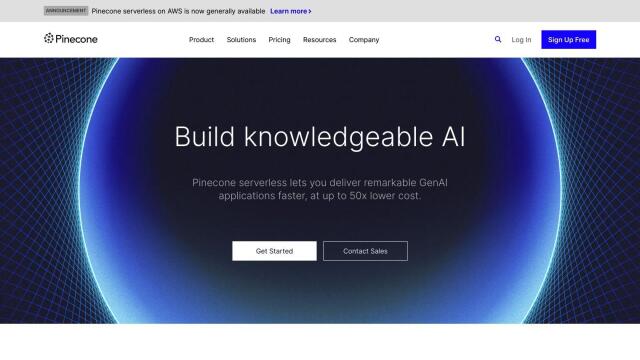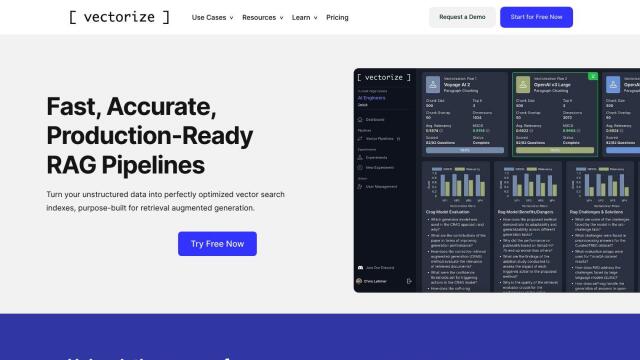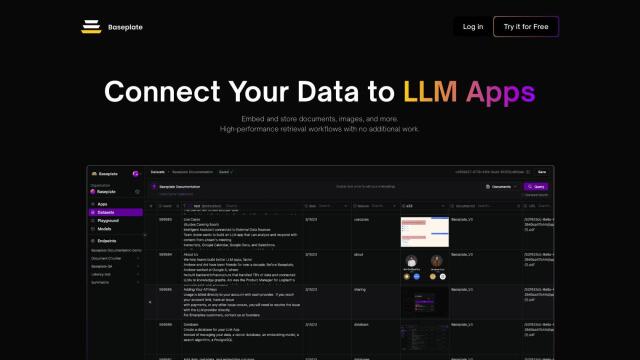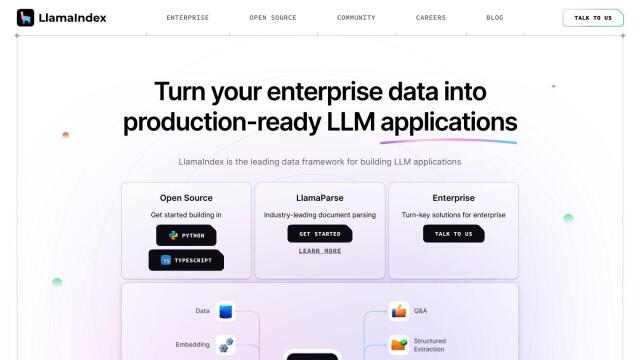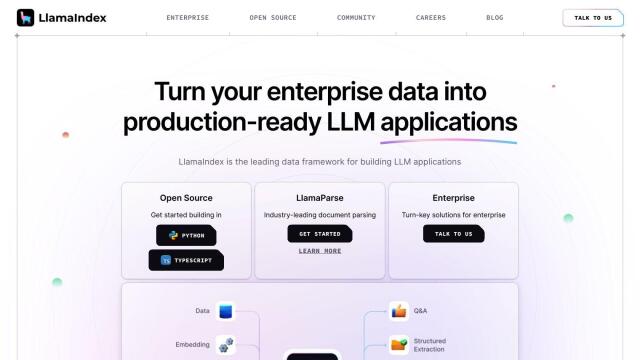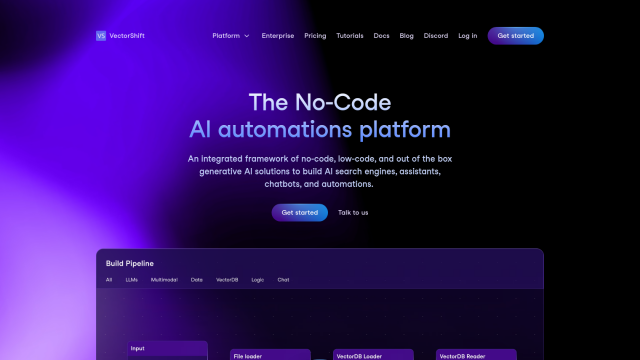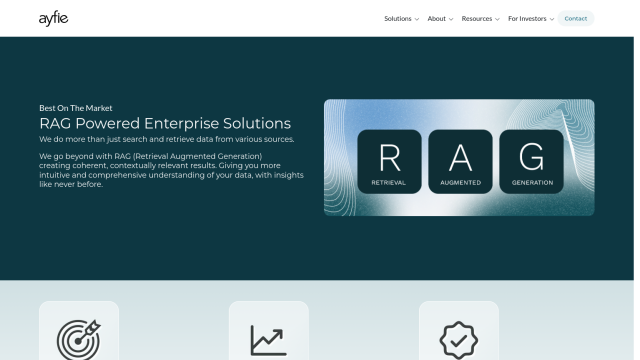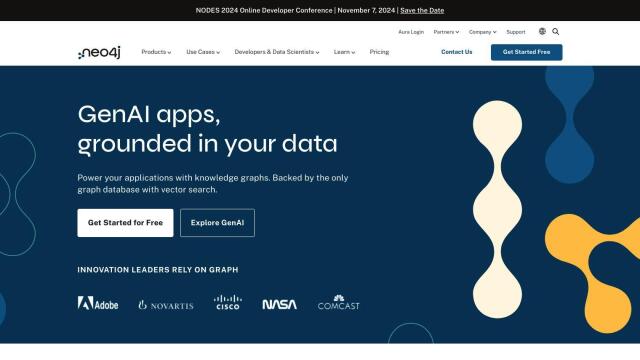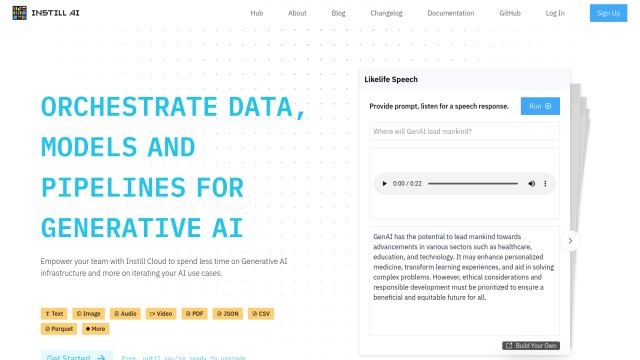
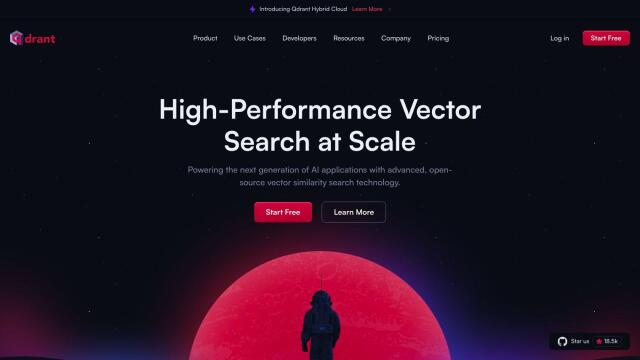
Qdrant
If you're looking for another Pinecone alternative, Qdrant is worth a look. It's an open-source vector database and search engine for fast and scalable vector similarity searches. Built on a cloud-native architecture and written in Rust for high-performance processing, Qdrant offers cloud-native scalability and high availability. It supports leading embeddings and frameworks and can be deployed in a variety of ways, including a free tier with a 1GB cluster, so it's a good option for those on a budget.


Vespa
Another serious contender is Vespa, an online service that marries vector search with lexical search and search of structured data. It can perform fast vector search and filtering with machine-learned models, which makes it useful for search, recommendations and personalization. Vespa's ability to search structured data, text and vectors in one query is a big selling point. It offers free usage to get started and works with a range of machine learning tools.

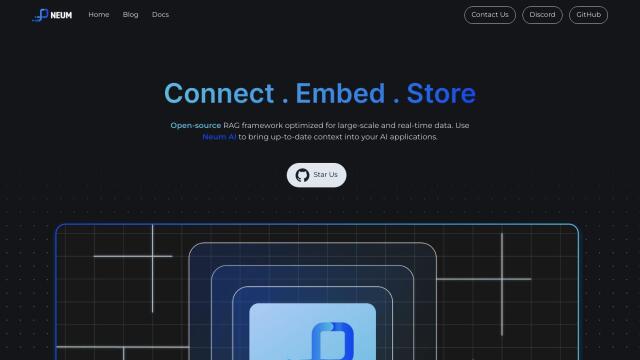
Neum AI
If you're interested in Retrieval Augmented Generation (RAG) and semantic search, Neum AI offers an open-source framework for building and managing data infrastructure. It includes scalable pipelines for processing millions of vectors and keeping them up to date in real-time. Neum AI supports real-time data embedding and indexing and can be easily integrated with services like Supabase, and it offers a range of pricing tiers for different needs and scale.

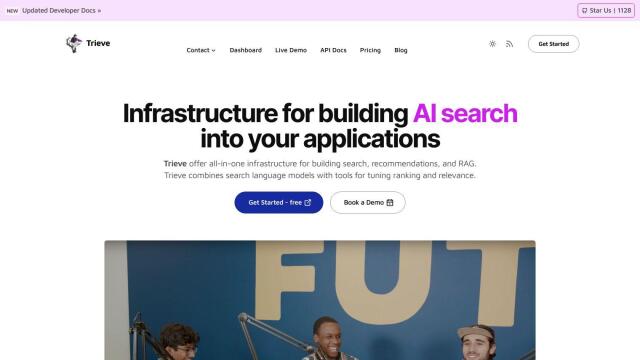
Trieve
Trieve is another all-in-one option, offering a full-stack infrastructure for building search, recommendations and RAG experiences. It supports private managed embedding models, full-text neural search and semantic vector search, so it's good for advanced search use cases like date recency biasing and semantic search. Trieve offers flexible hosting options with terraform templates and a range of pricing plans, including a free plan for non-commercial use.

